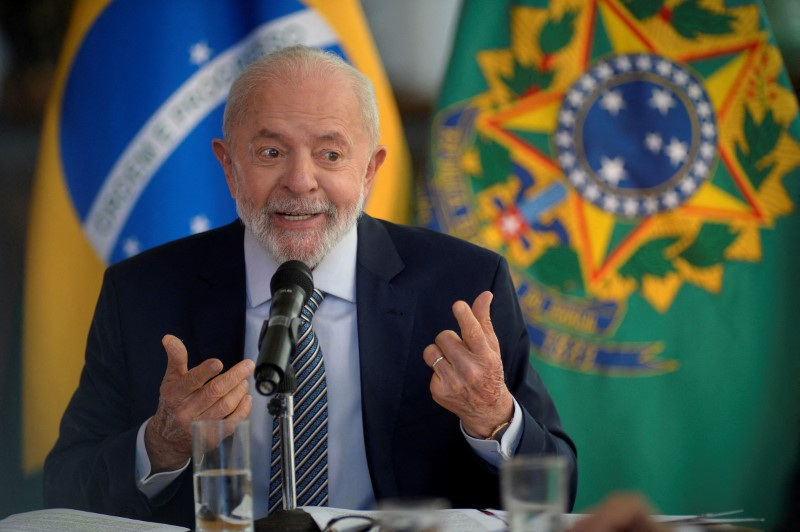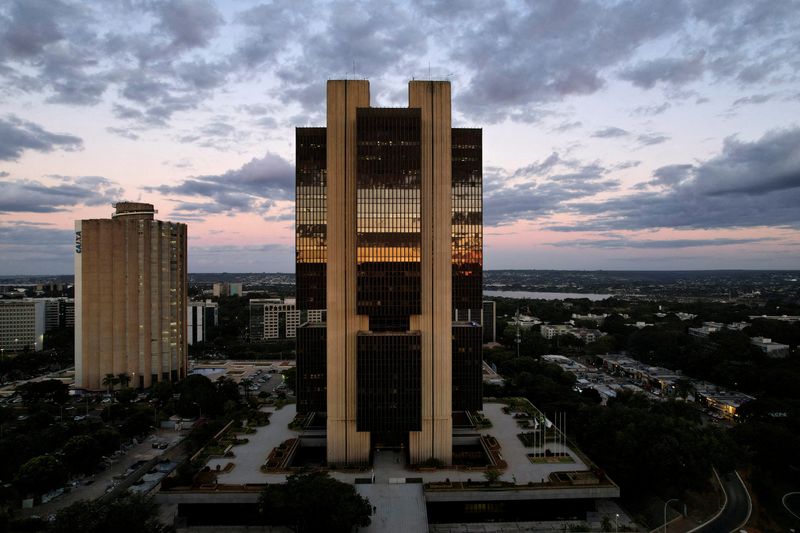By Marcela Ayres and Bernardo Caram
BRASILIA (Reuters) - Brazil's President Luiz Inacio Lula da Silva is looking at submitting all four of his upcoming nominations for the board of the central bank at once, including Gabriel Galipolo for the bank's presidency, people familiar with the matter told Reuters.
The nominations are expected in the coming weeks, according to Finance Minister Fernando Haddad. If approved by the Senate, Lula's choices will take office in 2025, giving the leftist president seven picks on the central bank's nine-member interest rate-setting committee, known as Copom.
The presidential palace did not reply to a request for comment. The Finance Ministry and central bank declined to comment.
Galipolo, the central bank's monetary policy director, has long been seen as a strong contender to replace governor Roberto Campos Neto, whose term ends in December, said seven sources, who requested anonymity to discuss the confidential deliberations.
Fernando Honorato, chief economist at Banco Bradesco, is being considered for Galipolo's current role, as he has good relations with the Finance Ministry and other government officials, said three sources. One of the sources noted that other candidates are still in the running.
Bradesco said it was "unaware of the matter."
Another source said that Marcelo Kayath, a partner at QMS Capital and former managing director at Credit Suisse in Brazil, had been approached for the position but declined.
Kayath declined to comment on the matter.
Two sources said that Gilneu Vivan, the current head of the department regulating the financial system, is one of the names being considered for the director of regulation, a seat now held by Otavio Damaso.
The same two sources said Juliana Mozachi, head of the conduct supervision department, is a strong candidate to become director of institutional relations, replacing Carolina Barros.

Her appointment would also ensure at least one woman on the rate-setting board, one of the sources noted.
Traditionally, the directors of regulation and institutional relations are career central bank officials, unlike the monetary policy director, who runs the foreign exchange desk and often comes from a background in the financial markets.
